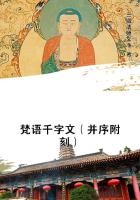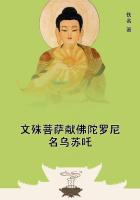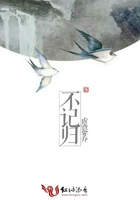[The only work, not purely botanical, which occupied my father in the present year was the correction of the second edition of 'The Variation of Animals and Plants,' and on this he was engaged from the beginning of July till October 3rd. The rest of the year was taken up with his work on insectivorous plants, and on cross-fertilisation, as will be shown in a later chapter. The chief alterations in the second edition of 'Animals and Plants' are in the eleventh chapter on "Bud-variation and on certain anomalous modes of reproduction;" the chapter on Pangenesis "was also largely altered and remodelled." He mentions briefly some of the authors who have noticed the doctrine. Professor Delpino's 'Sulla Darwiniana Teoria della Pangenesi' (1869), an adverse but fair criticism, seems to have impressed him as valuable. Of another critique my father characteristically says ('Animals and Plants,' 2nd edition volume ii. page 350.), "Dr. Lionel Beale ('Nature,' May 11, 1871, page 26) sneers at the whole doctrine with much acerbity and some justice." He also points out that, in Mantegazza's 'Elementi di Igiene,' the theory of Pangenesis was clearly foreseen.
In connection with this subject, a letter of my father's to 'Nature' (April 27, 1871) should be mentioned. A paper by Mr. Galton had been read before the Royal Society (March 30, 1871) in which were described experiments, on intertransfusion of blood, designed to test the truth of the hypothesis of pangenesis. My father, while giving all due credit to Mr. Galton for his ingenious experiments, does not allow that pangenesis has "as yet received its death-blow, though from presenting so many vulnerable points its life is always in jeopardy."He seems to have found the work of correcting very wearisome, for he wrote:--"I have no news about myself, as I am merely slaving over the sickening work of preparing new editions. I wish I could get a touch of poor Lyell's feelings, that it was delightful to improve a sentence, like a painter improving a picture."The feeling of effort or strain over this piece of work, is shown in a letter to Professor Haeckel:--"What I shall do in future if I live, Heaven only knows; I ought perhaps to avoid general and large subjects, as too difficult for me with my advancing years, and I suppose enfeebled brain."At the end of March, in this year, the portrait for which he was sitting to Mr. Ouless was finished. He felt the sittings a great fatigue, in spite of Mr. Ouless's considerate desire to spare him as far as was possible. In a letter to Sir J.D. Hooker he wrote, "I look a very venerable, acute, melancholy old dog; whether I really look so I do not know." The picture is in the possession of the family, and is known to many through M. Rajon's etching. Mr. Ouless's portrait is, in my opinion, the finest representation of my father that has been produced.
The following letter refers to the death of Sir Charles Lyell, which took place on February 22nd, 1875, in his seventy-eighth year.]
CHARLES DARWIN TO MISS BUCKLEY (NOW MRS. FISHER). (Mrs. Fisher acted as Secretary to Sir Charles Lyell.)Down, February 23, 1875.
My dear Miss Buckley, I am grieved to hear of the death of my old and kind friend, though I knew that it could not be long delayed, and that it was a happy thing that his life should not have been prolonged, as I suppose that his mind would inevitably have suffered. I am glad that Lady Lyell (Lady Lyell died in 1873.) has been saved this terrible blow. His death makes me think of the time when I first saw him, and how full of sympathy and interest he was about what I could tell him of coral reefs and South America. I think that this sympathy with the work of every other naturalist was one of the finest features of his character. How completely he revolutionised Geology: for I can remember something of pre-Lyellian days.
I never forget that almost everything which I have done in science I owe to the study of his great works. Well, he has had a grand and happy career, and no one ever worked with a truer zeal in a noble cause. It seems strange to me that I shall never again sit with him and Lady Lyell at their breakfast. I am very much obliged to you for having so kindly written to me.
Pray give our kindest remembrances to Miss Lyell, and I hope that she has not suffered much in health, from fatigue and anxiety.
Believe me, my dear Miss Buckley, Yours very sincerely, CHARLES DARWIN.
CHARLES DARWIN TO J.D. HOOKER.
Down, February 25 [1875].
My dear Hooker, Your letter so full of feeling has interested me greatly. I cannot say that I felt his [Lyell's] death much, for I fully expected it, and have looked for some little time at his career as finished.
I dreaded nothing so much as his surviving with impaired mental powers. He was, indeed, a noble man in very many ways; perhaps in none more than in his warm sympathy with the work of others. How vividly I can recall my first conversation with him, and how he astonished me by his interest in what I told him. How grand also was his candour and pure love of truth.
Well, he is gone, and I feel as if we were all soon to go...I am deeply rejoiced about Westminster Abbey (Sir C. Lyell was buried in Westminster Abbey.), the possibility of which had not occurred to me when I wrote before. I did think that his works were the most enduring of all testimonials (as you say) to him; but then I did not like the idea of his passing away with no outward sign of what scientific men thought of his merits. Now all this is changed, and nothing can be better than Westminster Abbey. Mrs. Lyell has asked me to be one of the pall-bearers, but I have written to say that I dared not, as I should so likely fail in the midst of the ceremony, and have my head whirling off my shoulders. All this affair must have cost you much fatigue and worry, and how I do wish you were out of England...

